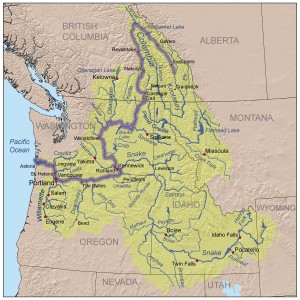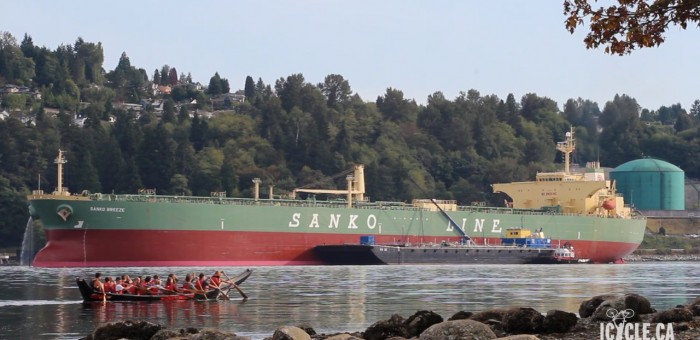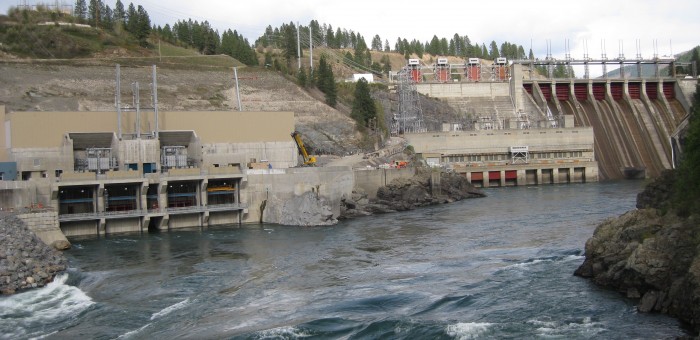Energy and Mines
Moving Forward with Site C Dam Project is Fiscally Foolish
Media Release: September 30, 2015
Andrew Weaver Calls Site C Dam Fiscally Foolish
For Immediate Release
Victoria B.C. – In a debate on the Site C dam in the B.C. Legislature today Andrew Weaver, MLA for Oak Bay – Gordon Head and Deputy Leader of the B.C. Green Party will reject the need for the Site C dam, calling the project ‘fiscally foolish, socially irresponsible and environmentally unsound’.
The debate has been called on a motion brought forward by the Minister of Energy and Mines, The Honourable Bill Bennett, for the House to support the construction of the Site C Clean Energy Project.
In his response to the motion, Andrew Weaver will make seven points arguing alternatives to Site C which will demonstrate clear fiscal, environmental and social benefits for the province.
1: Site C will require the flooding of 16,000 acres of viable agricultural land where alternative energy projects can provide the same power without the footprint;
2: First Nations traditional land use and provincial historical sites would be preserved;
3: Job creation associated with Site C is constrained to one region while alternative energy projects would benefit communities throughout the province, with better long term job prospects;
4: Cost overruns associated to Site C will be borne by provincial taxpayers. Solar, wind and geothermal project risks are covered by industry;
5: Renewable energy projects can be done in partnership with First Nations who would directly benefit through employment and revenue from installed facilities;
6: Site C will take far longer to complete, and is not scalable compared to wind and solar.
7: Renewable energy projects would be located closer to where the energy is required, benefiting regions throughout the province, and reducing energy loss through transmission.
While the Joint Review Panel did not specifically recommend or reject the Site C project, the report highlighted the lack of analysis on renewable alternatives, significant adverse effects on fish, wildlife and wetlands, and unmitigable adverse effects on First Nations traditional land use. In addition, the Canadian Geothermal Energy Association issued a comprehensive report demonstrating the viability of equivalent firm power at a cheaper megawatt rate, and with construction costs of $3.3 billion vs the estimated Site C costs now approaching $9 billion.
“I have been pointing out for several years now that Site C is the wrong project at the wrong time” said Andrew Weaver, “There are clear, viable and cheaper alternatives which the government is deliberately ignoring in order to justify a truly damaging decision. Imagine if we invested $9 billion into the clean technology sector, what a boost that would mean to the economy and employment around the province.”
The full transcript of Andrew Weaver’s speech is attached and will be available at www.andrewjweaver.ca, along with previous statements and analysis on the Site C project.
Media Inquiries
Mat Wright
Press Secretary – Andrew Weaver MLA
Cell: 250 216 3382
Mat.wright@leg.bc.ca
Twitter: @MatVic
Parliament Buildings
Room 027C
Victoria BC V8V 1X4
Serious questions must be asked about Trans Mountain Hearing Process
Media Release- September 3rd 2015
Serious questions must be asked about Trans Mountain Hearing Process
For Immediate Release
Victoria B.C. – After more than a year and a half, the National Energy Board (NEB) hearings for the Trans Mountain Expansion Project remain on hold as the previous deadline for final arguments passes. Andrew Weaver, MLA for Oak Bay Gordon Head and Deputy Leader of the BC Green Party is reiterating his call for the BC Government to establish it’s own review process.
September 3rd had been the deadline for intervenors to submit their final arguments for the NEB’s consideration under the old timeline. No new timeline has been established for when intervenors will submit their final arguments, or when the process will be resumed.
“My office prepared almost sixty pages of final arguments calling into question the evidence Kinder Morgan provided, especially around spill response.” said Andrew Weaver. “It is outrageous that once again the very impartiality of the process needs to be seriously debated. We’ve spent hundreds of hours operating under ridiculous time constraints reading thousands of pages of evidence to prepare our submissions and final arguments. The fact that in the eleventh hour the NEB is forced to put the hearing on hold points to the complete dysfunction of the current review process.”
The hearings were suspended by the NEB after Steven Kelly was appointed by Stephen Harper to the NEB in late July. Mr. Kelly is an energy consultant who was involved with preparing evidence that Kinder Morgan is in part relying on to justify the economics of their project,. This has set off a review by the NEB to identify the evidence that is connected to Mr. Kelly, striking any from the record that isn’t replaced by Kinder Morgan.
“The BC government is quick to suggest it’s five conditions are sufficient in ensuring that a project is in the best interests of British Columbians. ” said Andrew Weaver. “The fact is the five conditions can not, and do not act as a replacement for a rigorous process that allows for a diversity of intervenors to cross examine and test the evidence provided. I have lost confidence in the process. It is time for the BC Government to pull out of the equivalency agreement for this project and begin laying plans to initiate its own, rigorous review process.”
-30-
Media Contact
Mat Wright
Press Secretary – Andrew Weaver, MLA
Cell: 250 216 3382
Email: Mat.Wright@leg.bc.ca
Why are British Columbians spending so much time in the dark?
The windstorm that pummeled Metro Vancouver on the weekend is a wake up call to everyone in British Columbia that we need to be better prepared to cope with, and communicate about, extreme weather events. These are no longer once in a lifetime or 100 year events. Less than ten years ago the 2006 windstorm heavily damaged Stanley Park and left over 250,000 Hydro customers without power, some for many days. At its peak, this weekend’s storm left over 500,000 in the dark, literally and figuratively, complicated by the fact the BC Hydro website was unavailable, and communications between municipal authorities and emergency services appeared sporadic and uncoordinated. Since Saturday BC Hydro has managed a phenomenal effort in bringing most households and businesses online, and for that the crews often working in extremely difficult conditions must be thanked.
The cost of the storm has yet to be calculated, not only in terms of actual damage to infrastructure, homes and vehicles, but also to lost business. What is obvious though is that communication is essential. The lack of coordinated communication is what leads to the vast majority of messages on social media expressing frustration over lack of information.
This lack of communication and access to information is not new. Think back to last year and what transpired after the Mt. Polley tailings pond breach. It took far too much time for the provincial government to connect with and inform nearby residents. Think back to this past summer’s forest fire season and how it took the government an unseemly amount of time to reassure communities that all resources would be made available. And we can also reflect upon what happened in response to the bunker fuel spill in Vancouver harbour. The ‘after action’ report by John Butler highlighted the lack of coordination and communication between governments and agencies responsible for responding to the spill and informing the public. A pattern emerges.
Residents obviously don’t blame governments and authorities for causing the storm, but they do expect emergency communication systems to be in place to ensure that everyone is kept informed of ongoing developments. They also expect that effective communication systems will be in place to allow people to provide information back to authorities on issues affecting their neighbourhoods.
I am thrilled and heartened to see how so many people in all the areas impacted by power outages, downed trees and damaged homes came to the aid of their neighbours. But once power is fully restored to everyone, and the cleanup gets underway we should look at the lessons to be learned and how we can be better prepared before the next extreme weather event hits. And as the climate system continues to warm, we can expect this to be sooner rather than later.
Floods, Power and Fish: A Damming History
September 16, 2014 marked the 50th anniversary of the ratification of the Columbia River Treaty. It also triggered the beginning of a ten-year period for renegotiation for which we are now in the middle of the second year. As negotiations continue to evolve, I will provide ongoing analysis of the treaty process. In this, our first post on the topic, I offer a historical review of how we got to where we are today.
 The ~2,000 km long Columbia River begins in British Columbia’s Rocky Mountains and stretches through Washington before reaching the Pacific Ocean northwest of Portland, Oregon. Its drainage basin (including the rivers that flow into and join with it) includes parts of British Columbia, Washington, Idaho, Oregon, Montana, Wyoming, Utah and Nevada. That’s an area of about 670,000 square kilometres which is greater than the size of Alberta.
The ~2,000 km long Columbia River begins in British Columbia’s Rocky Mountains and stretches through Washington before reaching the Pacific Ocean northwest of Portland, Oregon. Its drainage basin (including the rivers that flow into and join with it) includes parts of British Columbia, Washington, Idaho, Oregon, Montana, Wyoming, Utah and Nevada. That’s an area of about 670,000 square kilometres which is greater than the size of Alberta.
The Columbia River has played a pivotal role in the economic development of British Columbia and it all began in the 1930s. During that time, the United States realized that it could harness the Columbia by damming it; it could then use the river for power generation, flood control, channel navigation and irrigation. The United States quickly realized, however, that to truly maximize the potential of the river — and to truly be able to control the possibility of severe flooding — it would also need to harness the river on the Canadian side. This need to enter into transboundary cooperation was underscored when a 1948 flood caused extensive damage from Trail, British Columbia to Astoria, Oregon, completely destroying Vanport, Oregon’s second largest city in a day. Sixteen years later, in 1964, the Columbia River Treaty was formally ratified, allowing for the development and operation of dams in British Columbia and thereby creating power and providing flood control for both Canada and the United States.
After the treaty was signed, British Columbia built three dams that have been continuously used to provide flood management and electrical generation (through hydropower) both in British Columbia and the United States. In return for the construction and extended reciprocal use of these dams, British Columbia receives, from the United States, an annual Canadian Entitlement now valued at between $250 and $350 million. As a result, electricity generated downstream, in the United States, provides nearly half of the city of Los Angeles’ electricity, while water from the dam system irrigates more than 7.3 million acres of previously non-arable land. In addition to the benefits provided to the United States and our own Canadian Entitlement, the Columbia River Basin now provides approximately half of the power generation capacity of British Columbia. So even without knowing it, each and every one of us continues to be affected daily by the 1964 Columbia River Treaty every time we turn on the lights or our televisions.
 It’s pretty clear how British Columbia benefits from the treaty: we get flood control, we get electricity, and we get an annual payment from the United States. For all of its benefits, however, it’s important to consider how the treaty impacts our province. Treaty dams flood almost 600 square kilometres of bottomland in British Columbia and the flooding affected residents of areas that were either flooded or were near the flooding. Furthermore, much of the land impacted is of cultural and titular importance to local First Nations.
It’s pretty clear how British Columbia benefits from the treaty: we get flood control, we get electricity, and we get an annual payment from the United States. For all of its benefits, however, it’s important to consider how the treaty impacts our province. Treaty dams flood almost 600 square kilometres of bottomland in British Columbia and the flooding affected residents of areas that were either flooded or were near the flooding. Furthermore, much of the land impacted is of cultural and titular importance to local First Nations.
In an effort to implement the treaty in a short amount of time, the British Columbia government did not substantively consider the impacts of altering the natural flow of the river. The result of this lack of consideration has meant that the people of the Columbia River basin have neither had much say in the development of the river, nor have they seen substantial direct economic benefits to their communities. This lack of consideration also extended to environmental issues, which, in the 1950s and 60s, were not of paramount importance during the negotiations. The use of British Columbia land, through the treaty, does not identify ecosystem considerations; it does not account for the potential implications of climate change; nor does it include mechanisms that allow for adaptation according to changing environmental, economic and regional conditions. Agriculture — in and around the Columbia River — has been required to change. Local ecosystems have shifted. Fish populations that previously used the river have disappeared or altered their activities. Although we have not “destroyed” the Columbia River basin, we have certainly had an impact on it.
In 1995 the Columbia Basin Trust was set up as after residents, including local government officials and First Nations, of the Columbia Basin approached the British Columbia Government with a request (as taken from the Columbia Basin Trust website):
- funds be allocated to the region, representing a fair share of the ongoing benefits being realized outside of the Basin as a result of the Columbia Basin Trust;
- a regional organization, governed by a board of Basin residents, be created to manage those funds.
As noted above, we are currently in the middle of the second year of a ten-year period of renegotiation. Both the United States and Canada have set up review committees to examine the current treaty and its effects. Both committees have advised that each country would substantially benefit from the continuation of the treaty. The issue becomes more complicated when the committees consider the costs and benefits for each jurisdiction. For example, the United States asserts that Canada is currently receiving more than its fair share of entitlements, while British Columbia believes that intangible benefits to the United States from our own water management are not currently accounted for under the treaty. Moreover, while both parties agree that accommodating environmental factors is a high priority, recommendations on the process for their accommodation vary. One thing that is certain, the negotiation process will ultimately play an important role in deciding the energy future of British Columbia.
Ultimately, the Columbia River Treaty renegotiation offers the potential for British Columbia to continue to play a major role in the energy sector of the Pacific Southwest. Furthermore, it gives British Columbia the opportunity to position itself as a leader in sustainable energy production and transnational energy cooperation.
If you are interested in further information, please consider reading the details of the regional recommendations from the United States and the recommendations from British Columbia. The province of British Columbia also provides information concerning negotiations on an ongoing basis.
As LNG bill passes, BC at odds with global community on climate change
Media Statement July 21st 2015
As LNG bill passes, British Columbia is at odds with the global community on climate change
For Immediate Release
Victoria B.C. – British Columbia is at odds with the global community, who are calling for governments to take immediate action on addressing and mitigating climate change according to Andrew Weaver, MLA for Oak Bay-Gordon Head and Deputy Leader of the B.C. Green Party. This statement comes a week after calling for an emergency debate on whether B.C. legislators are acting with sufficient urgency or demonstrating the leadership needed to mitigate and prepare for climate change.
Yesterday, twenty four of the UK’s foremost academic and professional institutions – including the British Academy, the Royal Society, and the Learned Society of Wales – released a statement that said “responding to the challenge [of climate change] will require deploying the full breadth of human talent and invention. Creative policy interventions and novel technological solutions need to be fostered and applied… Capturing this potential quickly and effectively will drive economic progress.”
“Today the B.C. Liberals are forcing through legislation that they desperately hope will land a single LNG investment,” said Weaver. “At a time when it is imperative that we are making meaningful investments in low-carbon technologies, the B.C. Liberals are pulling out the stops to build fossil fuel infrastructure that will commit the province to an energy-intensive non-renewable industry for the foreseeable future.”
In reference to the regional droughts, forest fires, lack of snowpack, and fishery closures currently affecting B.C., Andrew Weaver last week urged the House suspend discussion of LNG legislation to discuss the government’s inaction on climate change. Responding to MLA Weaver’s statement, Finance Minister Michael de Jong said, “…we have certainly experienced some extreme conditions in the province these past number of weeks that have contributed to some challenging circumstances. We heard about that earlier from the minister. Nor do I doubt the member’s interest and commitment to addressing some of the underlying issues that may or may not be contributing to that. Having said that, we are also bound and obliged to conduct proceedings in this chamber pursuant to the standing orders.”
Both the BC NDP and the BC Liberals argued against having an emergency one hour debate on climate change.
“The juxtaposition of the B.C. government being called into a summer session to push LNG legislation through, unwilling to spend an hour discussing our response to climate change while salmon are dying in warm rivers before they can spawn, Gulf Islands are starting to truck in fresh water, and the Premier’s own riding is on fire is incredibly striking, and only further highlights the inaction we are seeing” said Weaver.
“British Columbia has all the tools it needs to tackle climate change head on; we have the renewable resources required, and the innovative, creative, and inspired population,” said Andrew Weaver. “The missing element is a government willing to demonstrate the leadership required to focus the efforts. Right now they seem content to continue rearranging deck chairs on the Titanic.”
-30-
Media contact
Mat Wright
Press Secretary – Andrew Weaver MLA
Cell: 250 216 3382
Mat.wright@leg.bc.ca
Twitter: @MatVic
Parliament Buildings
Room 027C
Victoria BC V8V 1X4








